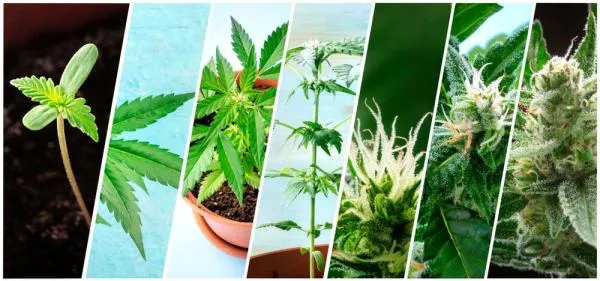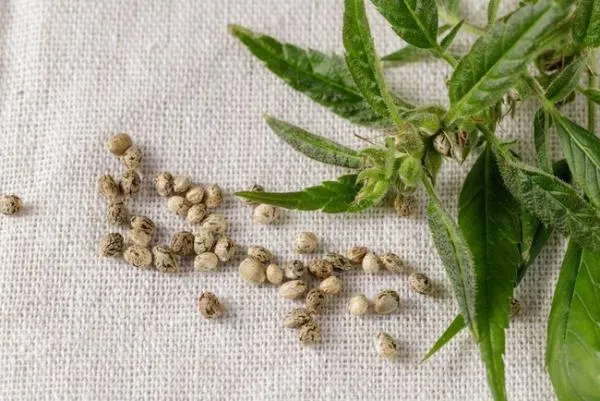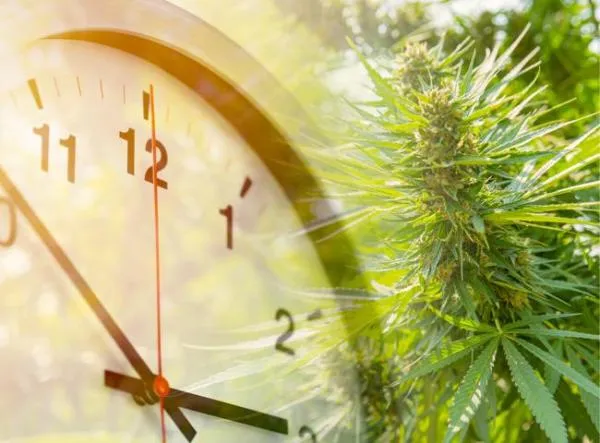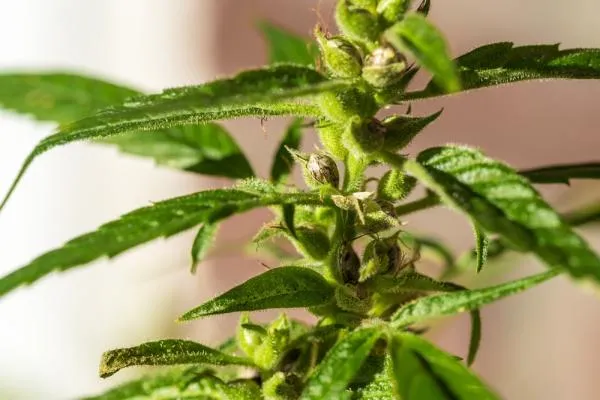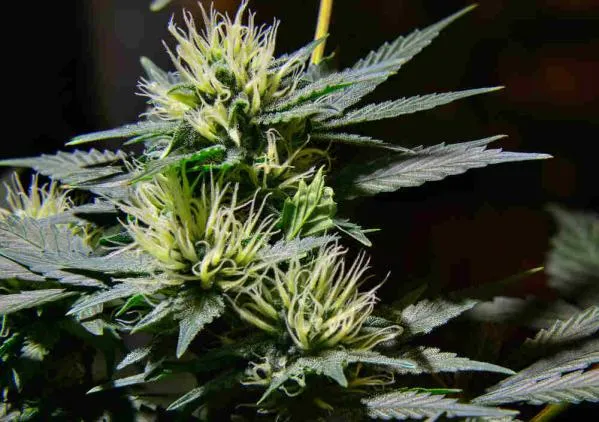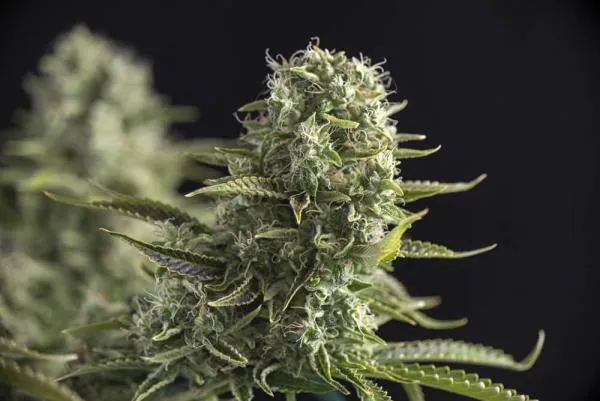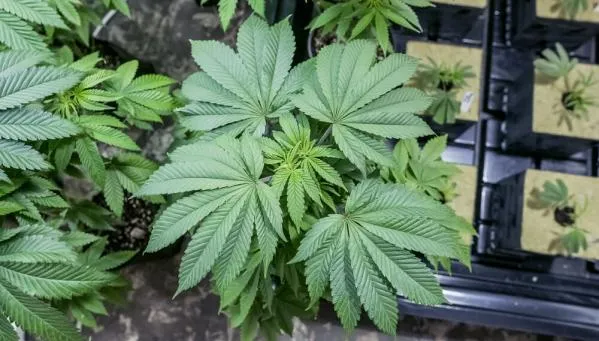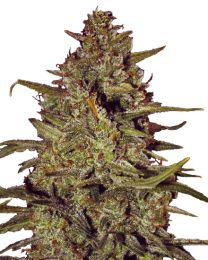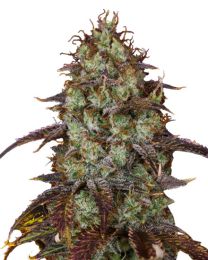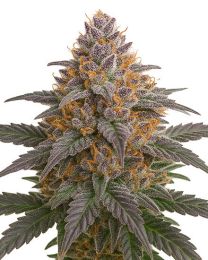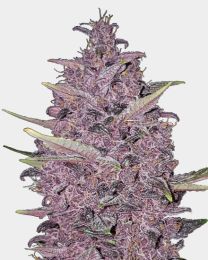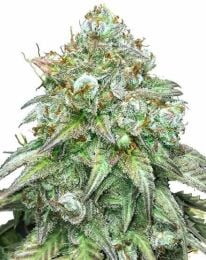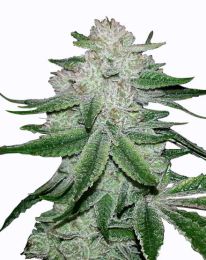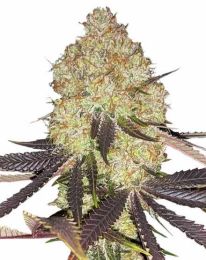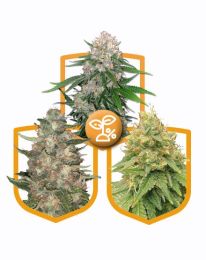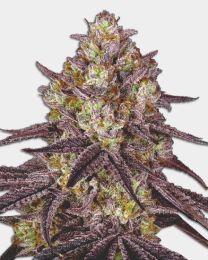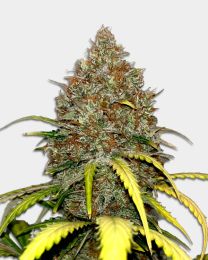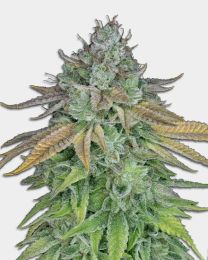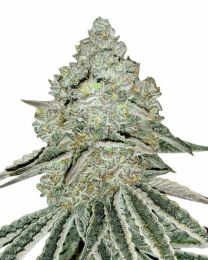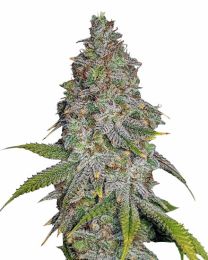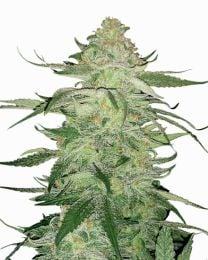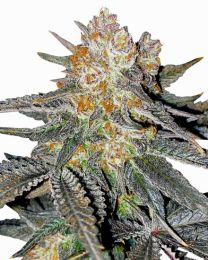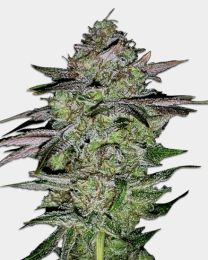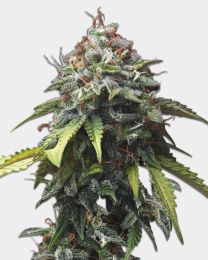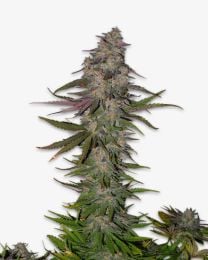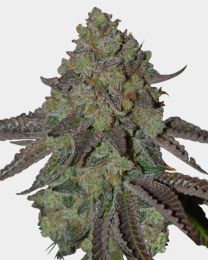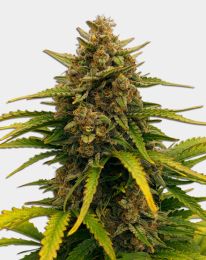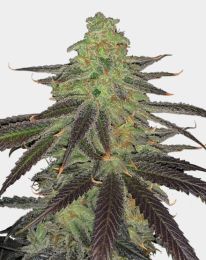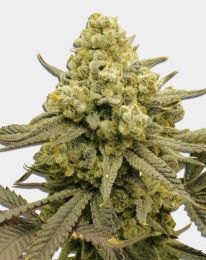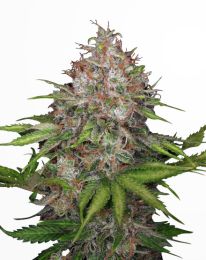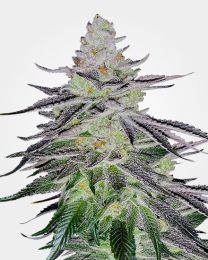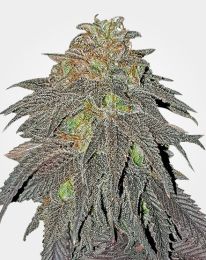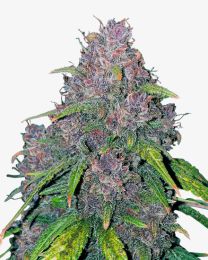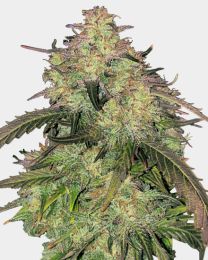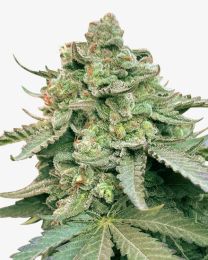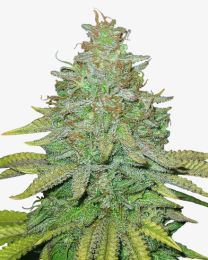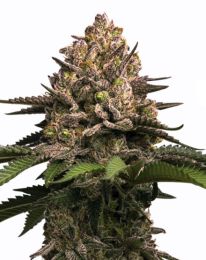Feminized Cannabis Seeds
Feminized cannabis seeds are bred to produce exclusively female plants, enabling growers to achieve cannabinoid-rich harvests with greater predictability.
In cannabis cultivation, female plants produce the resinous flowers that contain the highest concentrations of cannabinoids such as THC and CBD, while male plants generate pollen and do not contribute directly to usable flower production. Planting female-only seeds allows growers to dedicate all available space and resources toward flower yields, rather than maintaining unproductive male plants.
Unpollinated female cannabis plants, referred to as sinsemilla, have been observed to produce cannabinoid concentrations two to four times higher than pollinated plants. By eliminating the presence of males, feminized seeds help minimize accidental pollination, preserving flower quality and maximizing cannabinoid output.
At MSNL, feminized seeds are developed through controlled applications of Silver Thiosulfate (STS) treatment, a process that induces female plants to produce pollen containing only female chromosomes. Each feminized batch undergoes germination testing under standardized conditions, with successful sprout rates consistently between 90% and 99%.
Why Grow With Feminized Seeds?
Feminized seeds enable efficient cannabis cultivation by reducing the presence of unproductive male plants and allowing growers to maximize available growing space.
When planting regular seeds, growers typically encounter a 50% rate of male plants. Males occupy space and consume nutrients without contributing to flower production, and they carry the risk of fertilizing nearby females, resulting in seeded flowers with lower cannabinoid concentrations. Feminized seeds significantly reduce the likelihood of male plants emerging, typically to less than 1% under stable conditions.
In indoor growing environments, where space is limited and lighting costs are calculated per square meter, minimizing non-productive plants can improve overall crop efficiency. Outdoor growers working within seasonal windows benefit by ensuring that every plant progresses toward flower development, avoiding setbacks caused by male contamination.
Feminized seeds also reduce labor associated with plant sexing and removal during early growth stages. Studies on cultivation practices show that the early identification and removal of male plants can delay crop cycles by up to 12 to 18 days, whereas starting with feminized seeds promotes a more predictable and uninterrupted growing schedule.
How MSNL Feminized Seeds Are Made
Feminized cannabis seeds are produced by inducing genetically female plants to generate pollen without contributing male chromosomes, ensuring that offspring are also female.
The feminization process at MSNL involves applying a Silver Thiosulfate (STS) solution during the early flowering stage. This treatment inhibits ethylene production, a hormone critical for female flower development, causing the plant to form pollen sacs instead. Since the pollen carries only X chromosomes, it fertilizes other females to create seeds that will grow into female plants.
This method preserves the original traits of the parent plant, including cannabinoid profile, flowering time, and growth habit. Every batch of feminized seeds undergoes stability testing through controlled grow trials to verify genetic consistency and minimize the risk of hermaphroditism. These quality checks ensure that growers receive seeds that perform reliably across a range of cultivation environments.
Growing Feminized Cannabis Seeds: A Practical Guide
Indoor Cultivation
Indoor cultivation of feminized cannabis seeds allows growers to manage critical environmental variables, including light cycles, temperature, and humidity, which directly influence growth and yield.
Photoperiod feminized plants require an 18 hours light, 6 hours darkness cycle during the vegetative stage. To trigger flowering, growers shift lighting to 12 hours of light and 12 hours of darkness. Maintaining temperatures between 22°C and 28°C and humidity levels around 50%–70% during vegetative growth supports healthy development.
Supplementing indoor environments with carbon dioxide (CO₂) at concentrations between 1000 and 1500 ppm during light periods has been shown to enhance biomass production and increase flower yields. Nutrient programs should prioritize nitrogen during vegetative growth, with gradual increases in phosphorus and potassium as plants transition toward flowering.
Outdoor Cultivation
Outdoor cultivation relies on seasonal photoperiods to drive plant development. Feminized seeds should be planted after the last expected frost date, typically between early April and mid-May in temperate climates.
Healthy soil is critical for outdoor success. Ideal soils for cannabis have a loam texture composed of approximately 40% sand, 40% silt, and 20% clay, with organic matter levels exceeding 5%. Maintaining soil pH between 6.0 and 7.0 optimizes nutrient availability.
Irrigation should be adjusted based on rainfall, with care taken to avoid overwatering, which can increase the risk of root diseases. Applying organic mulch helps conserve soil moisture, regulate temperature, and suppress weed growth.
Hydroponic Cultivation
Hydroponic systems offer a soilless approach where feminized cannabis plants receive nutrients directly through water solutions. This method enables faster growth and often results in higher cannabinoid concentrations compared to traditional soil-based cultivation.
Feminized plants in hydroponic systems are typically grown in inert mediums such as coco coir, rockwool, or expanded clay pellets. Electrical Conductivity (EC) levels should be maintained between 1.2 and 2.0 mS/cm during vegetative growth, increasing slightly during flowering. Water pH should remain stable between 5.5 and 6.5.
Water temperatures between 18°C and 24°C promote root oxygenation and prevent pathogen development. Regular monitoring of pH, nutrient concentrations, and oxygen levels is essential to achieve optimal performance in hydroponic environments.
Selecting the Right Soil and Medium for Feminized Cannabis Seeds
Loam Soil for Outdoor and Greenhouse Cultivation
Loam soil, combining sand, silt, and clay in balanced proportions, provides ideal physical properties for cannabis cultivation.
This soil type offers both sufficient drainage and moisture retention, two critical factors for supporting vigorous root development and nutrient uptake.
Amending loam soils with compost or worm castings improves fertility, while materials like perlite or pumice can be added to enhance aeration. Soil pH should be maintained between 6.0 and 7.0 for optimal nutrient absorption.
Coco Coir as an Inert Medium
Coco coir is an inert, renewable growing medium made from coconut husk fibers. It retains more than 70% of its volume in water while maintaining 20%–30% air space, creating an ideal environment for root development.
Because coco coir contains minimal nutrients, growers must provide a complete nutrient solution throughout the grow cycle. Pre-buffering the coir with calcium nitrate helps prevent nutrient lockouts caused by residual sodium.
Living Soil Systems for Organic Cultivation
Living soil systems emphasize a biologically active growing environment where microorganisms break down organic material to supply plants with nutrients naturally.
Compost, biochar, and aged organic matter build the foundation of living soils. Practices like cover cropping and mulching help maintain biological diversity, while minimal soil disturbance preserves microbial networks critical for nutrient cycling and plant health.
Nutrient Management for Feminized Cannabis Growth Phases
Vegetative Growth Phase
During vegetative growth, feminized cannabis plants prioritize stem, leaf, and root development.
Higher nitrogen concentrations are essential during this phase, typically following a 3:1:2 NPK ratio. Micronutrients such as iron, manganese, and boron also play key roles in chlorophyll production and cell division.
Maintaining proper pH between 6.0 and 6.5 ensures efficient nutrient uptake during vegetative growth.
Transition (Stretch) Phase
As plants shift from vegetative to flowering stages, nitrogen levels should decrease while phosphorus and potassium concentrations increase.
A 2:1:3 NPK ratio supports the transition by promoting early bud formation without encouraging excessive vertical growth.
Supplementing with calcium and magnesium during this phase helps strengthen cell walls and maintain plant structure.
Flowering Phase
During flowering, cannabis plants focus energy on producing buds and resin.
A nutrient ratio of approximately 1:3:4 (N:P:K) supports flower development, with phosphorus enhancing bud formation and potassium aiding in sugar transport and resin production.
Lower nitrogen levels at this stage help limit unwanted leafy growth. Silica supplementation can further improve plant resistance to environmental stressors during late flowering.
Managing Hermaphroditism in Feminized Cannabis Plants
Hermaphroditism in cannabis refers to the development of both male and female reproductive structures on a single plant, which can compromise flower quality and reduce overall yields.
Although feminized cannabis seeds are bred to produce female plants, environmental or physiological stress can trigger the formation of male flowers. Factors such as inconsistent lighting schedules, nutrient imbalances, physical damage, or extreme temperatures significantly increase the likelihood of hermaphroditism. Maintaining stable environmental conditions during the plant’s life cycle is critical to minimizing this risk.
During cultivation, light interruptions during the dark period are among the most common causes of stress-induced hermaphroditism. Other contributors include deficiencies in essential nutrients such as calcium and boron, mechanical injury to stems and branches, and sustained exposure to temperatures outside the optimal range of 18°C to 28°C.
Feminized seeds bred from stabilized genetic lines show low natural rates of hermaphroditism when grown under controlled conditions. Even so, routine inspections during the early weeks of flowering are recommended. Identifying and removing any plants showing signs of male flower development helps prevent pollination and preserves the overall quality of the crop.
Frequently Asked Questions About Feminized Cannabis Seeds
What are feminized cannabis seeds?
Feminized cannabis seeds are selectively bred to produce only female plants.
Through specialized breeding techniques, female plants are induced to create pollen containing exclusively female chromosomes. When these pollen grains fertilize other females, the resulting seeds grow into female plants. This approach eliminates the typical 50:50 male-to-female ratio seen in regular seeds.
How are feminized seeds different from regular seeds?
Regular cannabis seeds can develop into either male or female plants.
Growers using regular seeds must identify and remove males to prevent fertilization, which can lower cannabinoid content in the resulting flowers. Feminized seeds greatly reduce the need for plant sexing, allowing growers to maximize space, resources, and flower production.
Can feminized seeds become hermaphroditic?
Feminized seeds carry a low risk of developing hermaphroditic traits, especially if plants are exposed to significant environmental stress.
Light interruptions, extreme temperatures, nutrient deficiencies, or physical damage can trigger the formation of male flowers on genetically female plants. Under stable growing conditions, the occurrence of hermaphroditism remains minimal.
How long do feminized cannabis seeds take to flower?
Flowering time for feminized cannabis seeds typically ranges from 7 to 12 weeks after the start of the flowering cycle.
Indica-dominant strains generally mature faster, often within 7–9 weeks, while Sativa-dominant strains may require 10–12 weeks. Proper lighting schedules, nutrition, and temperature control all influence the exact flowering duration.
Are feminized seeds better for beginners?
Feminized seeds simplify the cultivation process for beginners by removing the need to identify and eliminate male plants.
This approach maximizes the number of flowering plants per crop and reduces the risk of accidental pollination, making it easier for new growers to achieve successful harvests.
Are feminized seeds suitable for cloning?
Feminized cannabis plants can be cloned to produce genetically identical female offspring.
Cuttings taken from healthy, unstressed mother plants retain their female characteristics, allowing growers to propagate additional plants without the risk of introducing male traits.
-
20+ Years Experience
Over 500K seeds sold worldwide
100K+ Happy Customers -
Germination Guaranteed
Complete satisfaction or we will replace your order -
Dutch and USA Genetics
Master breeders inspiring strains from across the world -
1-5 Day Delivery - Guaranteed
Free Express Shipping to the US, Canada and UK
